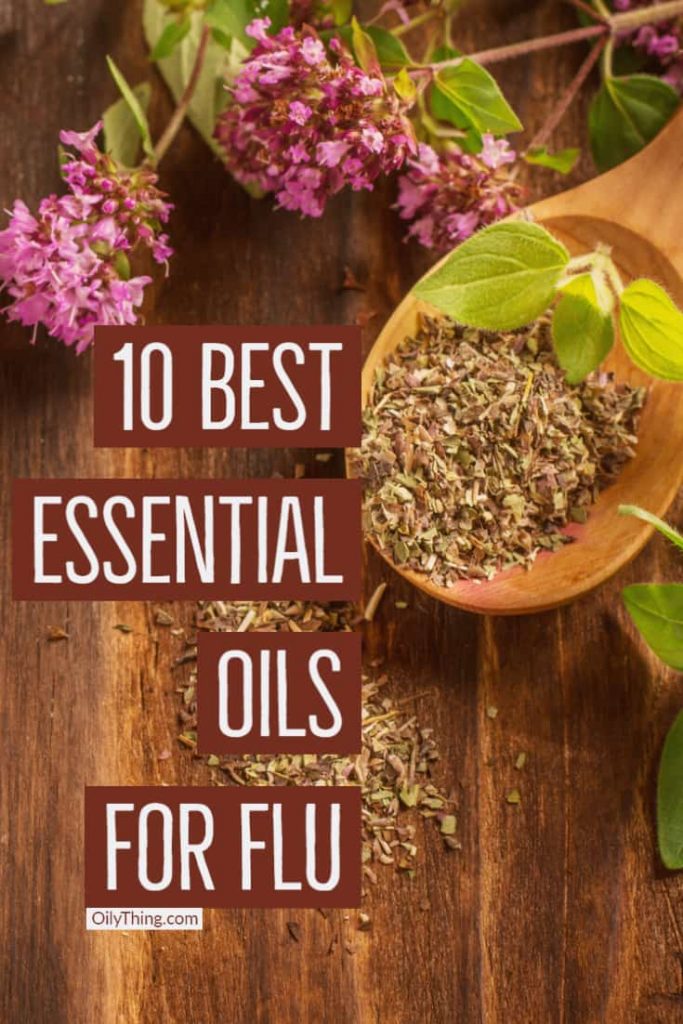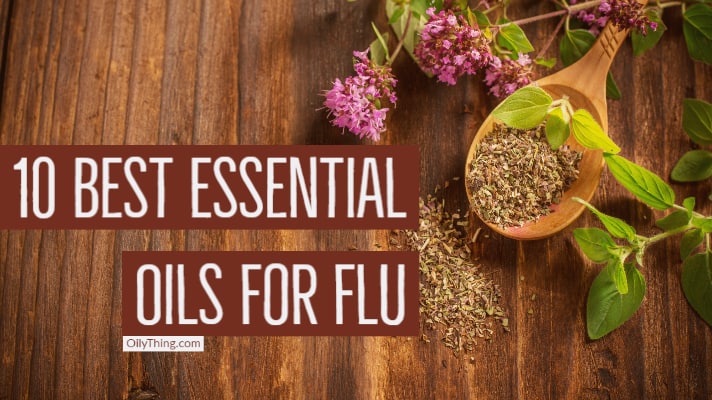Best Essential Oils For Flu
Is there really an essential oils for flu?, we’ll find it out in this article.
Achoo! The flu season is upon us, and with it comes a host of aches, pains, sniffles, and general malaise. The flu is a contagious virus and can cause anything from mild symptoms to life-threatening situations that can affect young and old, weak and strong.
Affecting over 9 million people annually, this widespread epidemic has most likely affected you or someone you know in recent years.
In this article, we are going to review the following essential oils:
- SVA Clove Bud Essential Oil – 16 Oz Clove Bud Essential Oil
- Organic Eucalyptus Essential Oil (100% Pure – USDA Certified Organic)
- Plant Therapy Fir Needle Essential Oil
- Organic Frankincense Essential Oil
- Ginger Essential Oil for Diffuser
- Majestic Pure Lemon Oil
- Plant Therapy Manuka Essential Oil 10 mL
- Plant Therapy Tea Tree Oil Organic (Melaleuca Essential Oil)
- Organic Peppermint Essential Oil from Healing Solutions
- Majestic Pure Oregano Essential Oil
Here are some things you need to know as well as how to combat the illness should you get hit hard this cold and flu season.
What is the flu?
The flu is a viral infection that burrows into your respiratory system, affecting your ears, nose, lungs, and throat. A commonly held misconception about the flu is that it also causes stomach upset, but these types of viral infections are unrelated to “influenza”, the focus of this article.
Most people are able to resolve the flu on their own, but some people experience complications from the virus that could quickly turn deadly if prompt medical attention is not received. People considered at high risk for developing flu complications include:
- Children under 5 years of age
- Adults older than 65 years of age
- Residents of nursing homes, retirement communities, or long term care facilities
- Pregnant women or those who have given birth within 2 weeks
- Those with compromised immune systems
- People with chronic illnesses such as heart disease, kidney disease, liver disease, and diabetes
- People with chronic respiratory illnesses
- Those who are considered morbidly obese
Flu Symptoms
The start of the flu is deceptive; it may start like a cold, but cold symptoms usually come on gradually, while the onset of the flu occurs suddenly and worsens quickly. Colds can be a nuisance, but the flu can interfere with your ability to complete daily activities. Symptoms of the flu include:
- A fever over 100.5
- Aching muscles
- Chills and sweating
- Headache
- Dry, persistent cough
- Fatigue and weakness
- Nasal congestion
- Sore throat
Most people can manage symptoms of the flu well at home, taking care to rest, drink lots of fluids, and eat when hungry. If your fever rises above 102 degrees, however, or you find yourself having difficulty breathing, it is important to see a doctor immediately to assess your condition.

Causes of the flu
The flu virus travels through the air when someone coughs or sneezes; you inhale droplets directly or come into contact with the virus on surfaces like computer keyboards, telephones, and countertops. People with the virus are highly contagious from the time they come into contact with the virus until five days after symptoms begin. The flu virus is constantly changing, and if you’ve had flu in the past, your body has likely produced antibodies that are able to fight off the infection. New strains, however, cannot be managed with antibodies that have effectively fought old pathogens–you must be proactive when preventing and managing the disease.
Risk factors for developing influenza
There are certain factors that make influenza more dangerous for some people than for others. Some of these factors include:
- Age–Children under the age of 2 and adults 65 years of age and older are more likely to develop severe complications associated with the flu.
- Living or working conditions–People who live or work in close quarters with one another are at higher risk for developing the flu; those who work in schools, nursing homes, and hospitals can develop the disease more often than those who work in other environments.
- Weak immune systems–Those undergoing cancer treatments, those who have autoimmune conditions or HIV, and others who have been on steroids and other types of drugs for longer periods of time are susceptible to contracting the virus. If you have a weak immune system, you must be diligent about washing hands and keeping your living and working environment clean to avoid getting the flu.
- Those with chronic conditions such as heart disease, kidney disease, respiratory issues, and diabetes are more at risk of developing complications that result from the flu.

Use Essential Oils for Cold and Flu
In most cases, fighting the flu involves allowing your body to fight off the infection as the disease runs its course. An effective form of easing symptoms of flu so that the body can recover involves using essential oils. Essential oils have their roots embedded deep in the archives of medicine’s history; they have been used for thousands of years to treat all sorts of ailments, issues, and infections quite effectively. Some are used to alleviate headaches and clear nasal passages, while others have strong antibacterial properties that can help fight infection and destroy pathogens in the body. You owe it to yourself and your family to obtain as much information as possible so that you can be proactive this flu season. This small sampling of essential oils for flu are proven to fight both the symptoms and the infection; use them as directed to alleviate your symptoms and even prevent the onset of the virus itself. Get ready to feel (and smell) better from the first application:
1. Clove oil
Clove oil is a wonderfully pungent oil that can help to reduce inflammation and support the immune system. Clove is one of the stronger oils, it is known as a “hot” oil that could burn the skin if it is not diluted. The use of carrier oil, like olive oil, could be used to topically apply it on the skin, or you can apply a few drops to your diffuser and diffuse it throughout your house for a wonderful scent. Inhale carefully for almost instant relief of stuffy nose and headache.
2. Eucalyptus oil
A compound contained in eucalyptus oil known as the console can significantly reduce mucus secretions caused by viral and bacterial infections. Applying with a carrier oil around the nose and along the throat will help reduce mucus, clear nasal passages, and minimize coughing associated with the flu. Use with caution when applying to young children; you may choose to diffuse to keep these little ones from rubbing this into eyes and causing irritation.
3. Fir needle oil
Fir needle oil helps support the health of the lungs, nose, and sinuses when you are all plugged up. Its antibacterial properties help to contain and reduce inflammation associated with infection, and it may even shorten the time that you experience uncomfortable symptoms. This oil is most effective when diffused.
4. Frankincense oil
Frankincense oil is an all-purpose oil that supports health and well-being. It helps to boost the immune system, with its anti-inflammatory, anti-arthritic, anti-proliferative, antimicrobial, and analgesic properties, frankincense can provide welcome relief from aches, pains, and general discomfort caused by flu symptoms.
5. Ginger essential oil
Ginger oil is a powerful element for helping to reduce nose, sinus congestion, and lung irritation associated with flu symptoms. Ginger oil can be used topically on the skin around the nose and throat, diffused throughout the house, or even sprinkled on food for internal ingestion.
6. Lemon essential oil
Lemon oil is a strong antimicrobial oil that can reduce inflammation and swell in the nose and throat. Its pleasant taste and smell make it ideal for adding to water and food for internal ingestions, where it begins to go to work, helping to contain the nasty virus associated with the flu.
Apart from Lavender and Coconut oil, Lemon essential oil is antiviral – add a few drops would be a good remedy for colds and flu.
7. Manuka essential oil
Manuka oil comes from the same shrub as manuka honey, although it is derived from a different part of the plant. Its strong anti-microbial and antibacterial properties are used to treat infections and help strengthen the immune system. You may diffuse, apply topically to skin with a carrier oil, or place a few drops into boiling water and inhale the steam to clear out a plugged throat and nasal passages.
8. Melaleuca oil
Melaleuca, or tea tree oil, is an excellent oil for keeping the nasal passages and respiratory system clean and free from mucus. Recent studies reveal its effectiveness in combating the influenza virus and shortening the duration of flu-like symptoms. Tea tree oil can irritate the skin; use a carrier oil if applying topically. You may liberally diffuse tea tree oil throughout your home for cleansing, calming effect on the mind and body.
9. Peppermint essential oil
Peppermint has a cooling effect for those of us suffering from fever, and its cleansing scent helps to clear sinuses and provide greater mental clarity. It is also an antifungal. A word of caution when using peppermint—it has been known to interact negatively with certain drugs; check with your doctor to see if any of your prescribed medications are those that would cause undesirable effects when combined with peppermint oil. For rapid relief, inhale a few drops, apply to the soles of your feet, your chest, neck, or back, and diffuse throughout your home for added antibacterial effects.
10. Oregano essential oil
Oregano oil is one of the strongest oils known for fighting off infections. Known to actively eradicate over 22 different strains of bacteria, it has been used for centuries to fight off common colds, flu, and minor infections quite easily. Always dilute oregano oil with a carrier oil, and feel free to diffuse throughout your home or workspace for fast, easy relief of symptoms.
For an ounce of prevention: The clear winner is……
While it is not possible to completely evade the flu from time to time, having these essential oils for flu in your medicinal arsenal will greatly improve your experience and shorten healing time. By far, the most potent antimicrobial and antibacterial oil you can use as you fight the flu this season is oregano oil! Using and diffusing on a regular basis will help you and your family stay healthy all winter long! Protect you and your family this flu season and begin collecting and using all of these beautiful blends for an easier, shorter flu season!

